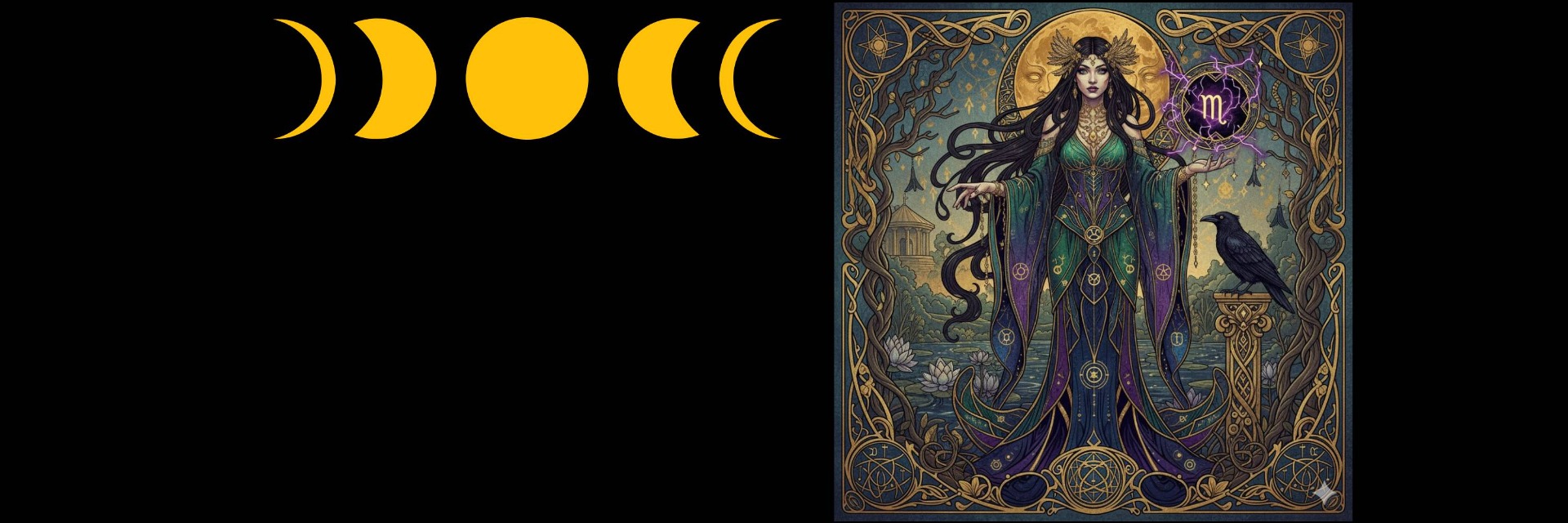Morgan le Fay: The "Venus in Scorpio" Witch
Right now, Venus is in Scorpio. I couldn't help but see a perfect, potent mirror in Arthurian legend: Morgan le Fay. Forget the dreamy sorceress of flowery prose. Morgan is the original, powerful woman whose intensity and refusal to play nice made her a villain. She embodies the aspects of the Venus in Scorpio archetype and, crucially, a feminist lesson.
The Archetype: Why Morgan is Pure Venus in Scorpio
Venus governs desire and value. Scorpio governs power, transformation, and secrets. When you put them together, you get someone who wants everything, feels everything, and knows how to manipulate the deep currents of power.
Intense Desire (All-or-Nothing): Morgan's emotions are absolute. Her love and her hate are indistinguishable in their intensity. She doesn't like her brother Arthur; she feels a consuming, protective bond. When betrayed, she doesn't get annoyed; she seeks total, transformative vengeance.
This is classic Scorpio behavior: no surface-level feelings allowed.
Magic as Psychological Power: Her power isn't brute force (Arthur's sword). It's the power of the hidden realm: illusion, healing, and psychological warfare. She runs Avalon, the secret, shadowy world that operates outside the light of Camelot's court. Her magic is her mastery of secrets—the ultimate Scorpio domain.
The Power of Transformation (Death and Rebirth): It's the ultimate paradox: Morgan is the villain who plots Arthur's downfall, but she is also the one who takes his dying body to Avalon. She holds the power of his death and his potential return. The ultimate healer. She is the keeper of the cycle.
The Schemer: She doesn't fight fair, she fights to win. Her plots to steal Excalibur or expose Guinevere and Lancelot are not random tantrums. They are strategic, long-term power moves designed to dismantle the very foundations of the kingdom she feels rejected by. This is the strategic, manipulative shadow of Scorpio.
The Feminist Interrogation: What Patriarchy Did to Her
Morgan le Fay wasn't born evil. She was written that way. Her journey is a roadmap of how independent female power is historically suppressed and demonized. She Was a Healer, Not a Hag. In the oldest accounts, Morgan was a learned scholar and a master healer who ruled a realm of knowledge (Avalon). She was a positive, powerful figure. Patriarchy Rewrote Her. As the legends became more Christianized and focused on the male chivalric code (Lancelot, Arthur), her independent power had to be villainized. Her knowledge became "witchcraft," her sexual agency became "licentiousness," and her emotional complexity became "vengeful malice." The female genius was turned into the female demon.
The Anti-Camelot: Morgan represents everything the male-led Camelot rejected: the spiritual, the emotional, the feminine, and the pagan. By making her the ultimate villain, the Arthurian narrative was essentially saying: Female power, independence, and magic are a threat to the state.
A Symbol of Resistance: Modern feminist readings, particularly in works like The Mists of Avalon, reclaim her as a rebel and an activist. She wasn't just jealous; she was fighting to maintain the spiritual power of women against an aggressively masculine, patriarchal system that was systematically erasing her culture.
Morgan le Fay is not a simple villain. She's the Venus in Scorpio archetype—intense, potent, and transformative—whose story was deliberately poisoned to make her independent power seem terrifying. She remains the queen of autonomy, even if it cost her reputation.


